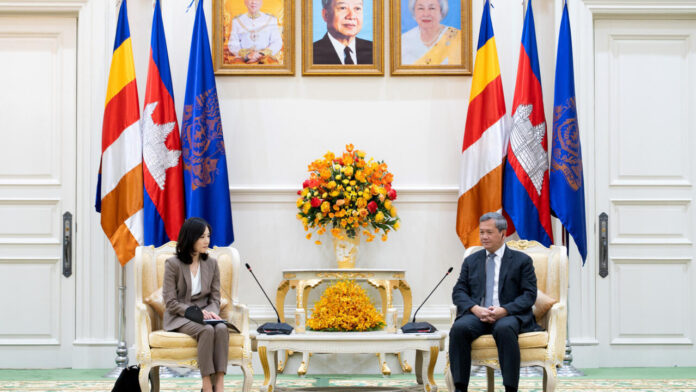Cambodian police said on Thursday that 59 South Korean nationals involved in cyberscam schemes will be deported on Friday, following Seoul’s request for assistance in tracking its citizens caught in fraudulent job networks.
The move comes after South Korea banned travel to parts of Cambodia on Wednesday and dispatched officials to Phnom Penh to discuss the growing number of fake job offers and online scam centres that have ensnared dozens of South Koreans.
“Authorities plan to deport 59 South Korean nationals… who have been rescued by Cambodian authorities or detained for other crimes to their country with cooperation from the embassy of South Korea,” Cambodia’s national police said in a statement.
Police said they had received requests to assist 60 South Koreans linked to scam operations this year. Forty were located following appeals from families and the South Korean embassy, while 76 others remain missing.
The announcement follows mounting concern in South Korea over online fraud rings in Southeast Asia, including the recent torture and killing of a South Korean college student in Cambodia, reportedly by a crime network.
Cambodia’s Prime Minister Hun Manet said he met with South Korea’s Vice Foreign Minister Kim Jina on Wednesday to discuss “joint efforts in combating transnational crimes, particularly online scams.” He said cooperation between both countries “has yielded many fruitful outcomes” and would continue to be strengthened.
According to Seoul, about 1,000 South Koreans are believed to be among roughly 200,000 people working in scam centres across Cambodia. Some victims, officials say, were lured by fake job offers and later forced to carry out “pig butchering” cryptocurrency scams under threats of violence.
South Korea’s National Security Adviser Wi Sung-lac told reporters that 63 South Koreans were believed to be in Cambodian custody, including both “voluntary and involuntary participants” in the scam operations.
Cambodian interior ministry spokesman Touch Sokhak said on Wednesday that 80 South Koreans were “not in detention” but were “being taken care of” by immigration authorities. However, Seoul’s foreign ministry said it remained “unclear whether the 80 South Koreans announced by Cambodia and the roughly 60 nationals the South Korean government is seeking to bring home are the same individuals.”
Amnesty International has reported that abuses in Cambodia’s scam centres occur on a “mass scale,” identifying at least 53 compounds where criminal groups engage in human trafficking, forced labour, torture, and other rights violations.
According to Cambodia’s anti-cybercrime commission, authorities have arrested 3,455 online fraud suspects from 20 Asian and African countries since late June, sending dozens of alleged ringleaders to court in cases involving online fraud, murder, and human trafficking.
More than 2,800 foreign nationals have been deported during the same period, while others have been rescued from trafficking, the commission said.

